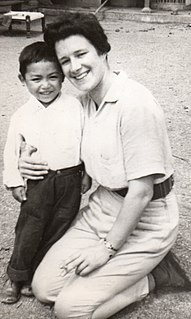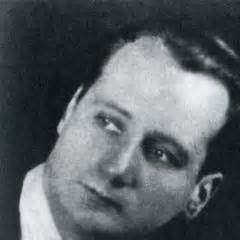A Quote by George Orwell
The main motive for nonattachment is a desire to escape from the pain of living, and above all from love, which, sexual or non-sexual, is hard work.
Related Quotes
Many people genuinely do not wish to be saints, and it is probable that some who achieve or aspire to sainthood have never felt much temptation to be human beings. If one could follow it to its psychological roots, one would, I believe, find that the main motive for "non-attachment" is a desire to escape from the pain of living, and above all from love, which, sexual or non-sexual, is hard work.
An intelligent couple can read their Darwin and know that the ultimate reason for their sexual urges is procreation. They know that the woman cannot conceive because she is on the pill. Yet they find that their sexual desire is in no way diminished by the knowledge. Sexual desire is sexual desire and its force, in an individual's psychology, is independent of the ultimate Darwinian pressure that drove it. It is a strong urge which exists independently of its ultimate rationale.
Faced with today's problems and disappointments , many people will try to escape from their responsibility. Escape in selfishness, escape in sexual pleasure, escape in drugs, escape in violence, escape in indifference and cynical attitudes. I propose to you the option of love, which is the opposite of escape.
There was a Russian cult of eunuchs known as the Skoptsy who were renowned for their proficiency as mathematicians, bankers, and moneylenders. Outsiders called them rapacious but this was simply their jealousy speaking - when one is freed from sexual desire, or sexual desire is transmuted into work, suddenly the world becomes engorged with possibilities.
That "ol' black magic" is a fickle force. The chemistry of romantic love can trigger the chemistry of sexual desire and the fuel of sexual desire can trigger the fuel of romance. This is why it is dangerous to copulate with someone with whom you don't wish to become involved. Although you intend to have casual sex, you might just fall in love.
The sexual act - thinking about the sexual act, the telling about the sexual act, after the sexual act, is so much more important than the actual sexual act - just in time. It's like of the whole sexual act, you probably spend 95% of the time thinking about it, talking about it afterwards. The actually sexual act, especially when you're 17, is minutes.
God wants a love partner, centering on the place where husband and wife become one through their sexual organs, God wants to appear and meet us...I wish you would center on the absolute sexual organ, unique sexual organ, unchanging sexual organ and eternal sexual organ and use this as your foundation to pursue God...We have to realize that the Kingdom of God on earth and in heaven will begin on this foundation.
In Lucretius, sexual desire is considered real and genuine, whereas love is illusory. Venus, the goddess who represents the power of sexual desire, is the font of love. She merely mocks lovers with mental images. Try as they might, lovers cannot satisfy themselves by gazing nor by rubbing against one another because the madness of love will always return; hence Lucretius' prescription to flee the mental images, that is, to ward off what feeds love, turning the mind elsewhere.
Britten's opera tends to see things in simpler terms. It portrays an Aschenbach who wants a richer form of sexual fulfillment, and who is hemmed in by the social conventions to which he subscribes. But Visconti's use of the Mahler Adagietto is perfect for what I take to be Aschenbach's sexual desire.





































